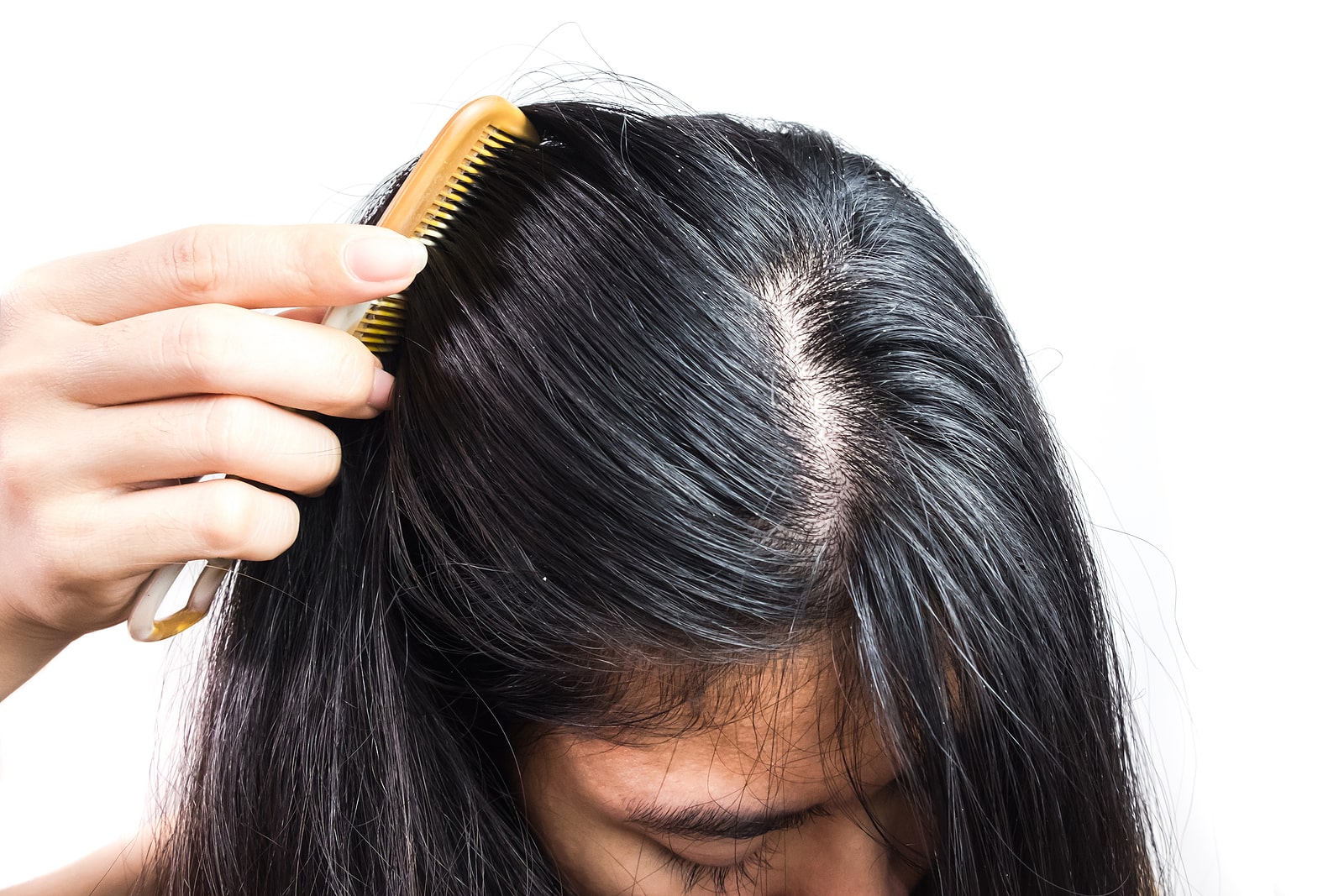Scalp health is an important part of maintaining strong, beautiful hair. In the words of trichologist Guy Parsons, the scalp is “the flower bed and soil from which your hair grows.” A clean scalp promotes good cell turnover and a healthy environment for hair growth. All people need to keep their scalps healthy, regardless of age or hair type. Read on for five signs of poor scalp health.
Oiliness
The scalp generates natural oils that keep hair moisturized and healthy. Natural oil protects the scalp from drying out too quickly, which can lead to hair brittleness and breakage. However, if the scalp becomes too oily, it can promote the growth of bacteria and fungi that cause dandruff and other scalp conditions. You can find out whether you have excessively oily hair by scheduling a hair analysis with a local hair restoration and replacement service.
Burning/Itching
If you have noticed your scalp feeling itchy and/or a burning sensation, this may be signaling scalp issues. Inflammation of follicles, allergies, and bacterial infections can cause the scalp to become irritated. This can be caused by a number of things, such as incompatible hair products and an uneven balance of natural oil content. Try switching up your shampoo, conditioner, and other hair products you use regularly.
Hair Loss/Thinning
Hair loss and thinning is natural and is experienced by most people at some point. However, rapid or unusual hair loss may mean your scalp is unhealthy, and therefore unable to sustain healthy growth. Hair grows from and through follicles which surface on the scalp. Oil is produced by these individual follicles. If too much of it builds up on the scalp, in addition to product residue and dead skin, it can cause infection and impact the quality of hair growth. Permanently blocked follicles can even cease to produce new growth at all. If follicles on the scalp are not kept clean, they are unable to generate healthy new hair or keep existing hair in good condition, which can lead to hair thinning and hair loss.
Flaking/Dandruff
Dandruff is usually the result of a mild infection. Oil, debris, dead skin, and products build up over time and trap bacteria, allowing it to grow on the scalp. This leads to excessive skin cell growth on the scalp, which then builds up and sheds in the form on dandruff. Buildup is usually the result of infrequent shampooing and poor hygiene. Hormonal changes, stress, and illness can also cause these bacteria to become imbalanced. Greasy dandruff, on the other hand, appears like yellow flakes that stick to the scalp and hair. It is also caused by poor scalp hygiene. A flaky scalp might also be the result of a dry scalp, which is a sign that you need to moisturize. You may need to adjust your shampooing schedule, as shampoo is, by nature, drying, and work in regular deep conditioning treatments.
Redness
A reddish scalp can be caused by a few different problems. Sunburn on the scalp is common as it is difficult to protect the scalp without the use of a hat or scarf. Sun burns are extremely drying for skin and can result in scalp skin issues. This may cause some flaking that looks like dandruff. Harsh hair products such as bleach and hair color products can also cause scalp redness and even produce allergic reactions. If you’re noticing scalp redness, you may be experiencing a reaction to a new product or a recent treatment. However, it may also be caused by something more serious, such as the following infections:
- Psoriasis
- Seborrheic dermatitis
- Bacterial infection
If redness is persistent and/or widespread across the scalp, it is important that you visit a doctor or dermatologist as soon as possible.
Improving Scalp Health
Change Your Products
Switching up your haircare products can make a huge difference when it comes to scalp health. If you’re experiencing problems, you may not even realize you’re using a product that is irritating your skin and therefore causing an allergic reaction. Try using sulfate-free shampoos and conditioners. Look for products that contain the following:
- Tea tree oil
- Coconut oil
- Salicylic acid
- Vitamin B
- Argan Oil
- Biotin
Exfoliate
Exfoliating your scalp is just as important as exfoliating your face and the rest of your body. Exfoliation makes way for fresh hair follicles and new skin, which promotes the growth of healthy hair. Additionally, it removed buildup on the scalp, allowing healthful natural oils to keep the scalp nourished. It is recommended that you exfoliate your scalp once every seven to ten shampoos.
Moisturize
As mentioned, a flaky, dry scalp needs moisture. In fact, all scalps need moisture to maintain optimal oil levels and also keep hair strong. Try using hair masks, deep conditioners, and hair oils to boost moisture. It’s important to make sure your scalp doesn’t become too oily, though, so be sure to at least rinse your hair and scalp every day as well, even if you aren’t shampooing it. Try a leave-in conditioner after showering and work it into your roots and scalp.
Contact Us
If you are interested in improving the look and feel of your hair, contact Eldorado today. We offer hair restoration and replacement services to the Washington, D.C., Maryland, and Virginia communities. Call 410-343-4680 to schedule a hair analysis at our Baltimore hair restoration center.





